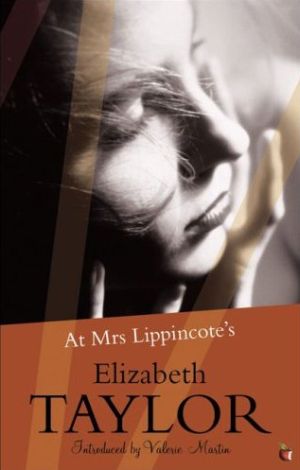I selected this book because it was recommended by Jane Brocket. I bought it from here (which, by the way, is a fabulous place – free postage!).
This is the blurb from the back …
Mrs. Lippincote’s house, with its mahogany furniture and yellowing photographs, stands as a reminder of all the certainties that have vanished with the advent of war. Temporarily, this is home for Julia, who has joined her husband Roddy at the behest of the RAF. Although she can accept the pomposities of service life, Julia’s honesty and sense of humor prevent her from taking her role as seriously as her husband might wish; for Roddy, merely love cannot suffice—he needs homage as well as admiration. And Julia, while she may be a most unsatisfactory officer’s wife, is certainly no hypocrite.
This is a subtle understated book about a time and place where women’s lives were stifled by custom and circumstance. Julia is married to Roddy, a junior officer in the RAF. They have a son, Oliver, and Eleanor (Roddy’s cousin) lives with them while recovering from a breakdown. Her special friend was
‘…reported missing, then killed and then, after a long time, a prisoner of war.’
Julia and Eleanor are polar opposites and Mrs Taylor uses these extremes to highlight that all women’s lives are narrow and confined. Eleanor wants to be married, preferably to someone like Roddy – possibly even Roddy – and if so she would support him in his career and ensure that he is well feed and cared for. Julia, however, is a free spirit who wants to have control of her life. For example, she wants to be able to go out and have a drink whenever and not just on ‘ladies night’. She can be relied on to say something vague or outrageous that will embarrass Roddy.
Roddy’s boss, the Wing Commander, shares an interest in the Brontes with Julia and Oliver (he also knits socks much to the inane twittering of the Officers’ wives). I think he is even in love with Julia. He provides them with an occasional treat – a hare some eggs – plus he encourages his daughter to befriend Oliver (a sickly isolated child who relates all of his experiences to something he has read). The depiction of the relationship between Julia and Oliver is one of the highlights of this novel.
Roddy, in my opinion, is simply a pratt! He has nothing in common with Julia – it seems a marriage where neither party can respect the other. And there is the lonely spinster Eleanor. She develops a relationship with Mr Aldridge (the carpentry teacher) and his communist friends. This group of communists provides Eleanor with a sense of belonging although sadly she is deluding herself – apart from Sarge none of the communists like her or think she is useful.
Mrs Taylor is a precise, elegant writer who provides us with glimpses into the consciousness of all of her characters. She excels at describing the ordinary in a compelling and somewhat menacing manner.
Finally there is the house – Mrs Lippincote’s. Mrs Lippincote has moved to a hotel and has rented her house fully furnished to Roddy (she has even left her family photos on display). This house is damp, dark and slightly sinister – a character in itself.
Read this book for the domestic detail of war time England or read it to appreciate the confined lives of middle class women.

